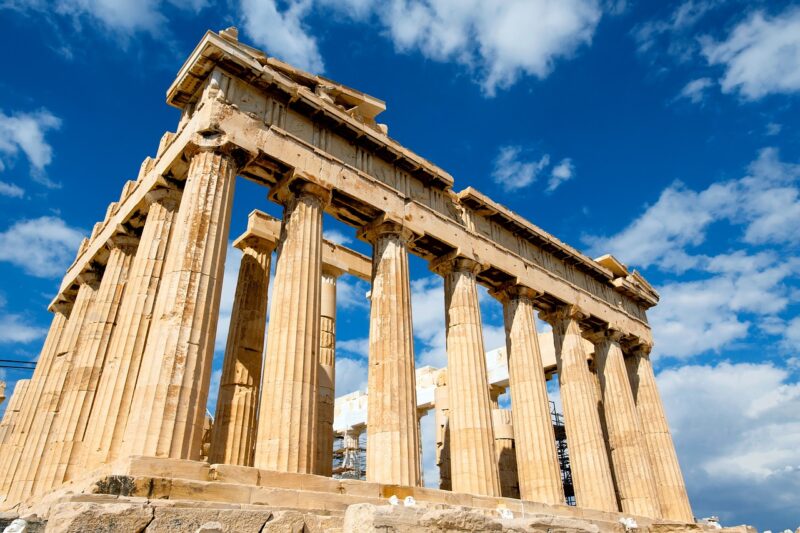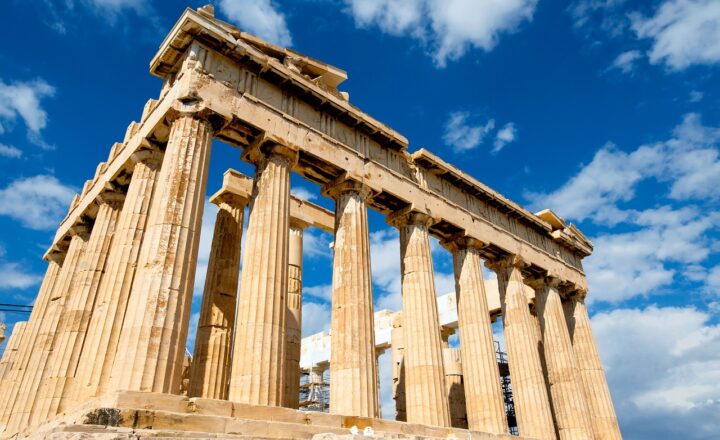The Origins of Democracy: How Ancient Greece Laid the Foundation for Modern Government
November 14, 2024

Democracy, a term that broadly refers to a system of government where citizens exercise power directly or elect representatives to govern on their behalf, has evolved over centuries. While various forms of governance have existed throughout human history, the concept of democracy as we understand it today roots itself deep within the history of Ancient Greece. This article delves into how Ancient Greece not only shaped the rudiments of democracy but also left a lasting impact on modern governance.
1. The Political Landscape of Ancient Greece
Ancient Greece was not a unified nation but a collection of city-states, known as poleis, each functioning as an independent political entity. Notable city-states included Athens, Sparta, Corinth, and Thebes. The political structures varied significantly, with some favoring oligarchies, while others leaned towards tyranny or monarchies. Among these, Athens is credited with pioneering the concept of democracy.
Athens’s transformation into an early democratic state began in the late 6th century BCE under the leadership of reformers like Solon and Cleisthenes. Their progressive reforms gradually dismantled the aristocratic structures that had long dominated.
2. Solon’s Reforms: The First Step Towards Democracy
In 594 BCE, Solon, a poet and statesman, instituted a series of reforms that laid the groundwork for democracy in Athens. Departing from tyranny, Solon established new laws that began to open political participation to a broader segment of society. Key features of his reforms included:
- The Abolition of Debt Slavery: Aimed at alleviating the severe economic inequality in Athens, Solon abolished the practice of enslaving individuals for debt, allowing many citizens to regain their place in society.
- Council of Four Hundred: He created a new council that enabled increased representation from diverse social classes, thus allowing more voices in political discussions.
- Legal Reforms: Solon introduced judicial reforms, allowing citizens the ability to appeal their cases to a jury, establishing a basis for legal representation that empowered average Athenians.
These measures began the gradual departure from aristocratic governance and fostered a political climate where the common citizen could have a voice.
3. Cleisthenes: The Father of Democracy
Though Solon’s reforms were crucial, it was Cleisthenes who is often hailed as the “Father of Democracy.” In 508 BCE, following a period of tyranny, Cleisthenes implemented sweeping reforms that solidified the framework of democracy in Athens. His initiatives included:
- Tribal Reorganization: Cleisthenes divided the populace into ten tribes, making representation broader and more equitable across city-state citizens rather than just aristocrats. Each tribe could elect representatives to the new legislative body, the Assembly (Ekklesia), which was open to all male citizens.
- The Council of Five Hundred: He established this council to prepare the agenda for the Assembly, ensuring that all citizens had the opportunity to participate in decision-making processes. Members were chosen by lot, promoting equality by avoiding entrenched power structures.
- Ostracism: This practice allowed citizens to exile individuals deemed a threat to the state for ten years, thus protecting the fledgling democracy from potential tyrants.
These reforms defined the very essence of Athenian democracy—where citizenship, equality, and direct participation became hallmarks of governance.
4. Participation and Rights in Athenian Democracy
Athenian democracy was direct, meaning that eligible citizens participated actively in government. However, it is essential to note who qualified as a citizen:
- Only free-born male Athenians aged 18 and older were considered citizens.
- Women, slaves, and foreign residents (metics) were excluded from political rights, highlighting the limitations of Athenian democracy by today’s standards.
Despite these exclusions, the Assembly became a hub for civic engagement where major policy decisions, war declarations, and legislative changes were debated and voted upon. It encouraged public discourse, fostering political awareness and responsibility among citizens.
5. The Legacy of Athenian Democracy
The policies and principles established by Ancient Greece, particularly Athens, laid a foundational framework for modern democratic systems. Key aspects of this legacy include:
- Concept of Citizenship: The idea of citizen participation in governance can be traced back to Athenian principles, inspiring revolutions and democratic movements across the globe.
- Rule of Law: Ancient Greeks introduced solid legal frameworks that emphasized equality before the law, an essential aspect of modern democracies.
- The Idea of Civic Responsibility: Athenian democracy emphasized the importance of public service and civic duties, a notion that continues to resonate in contemporary democratic societies, encouraging active participation and civil engagement.
The legacy of Athenian democracy lives on today, as modern governments around the world adopt and adapt its foundational elements.
6. Challenges to Athenian Democracy
Despite its groundbreaking nature, Athenian democracy faced its own set of challenges:
- Internal Strife: The constant power struggles between the aristocratic factions and popular leaders, combined with external threats from rival city-states, often impeded democratic processes.
- Exclusion of Major Groups: As previously mentioned, the exclusion of women, slaves, and metics showcased inherent inequalities that contradicted the very democratic principles established.
- Demagogues and Populism: The rise of demagogues who exploited public sentiment for personal gain created volatility within the democratic framework.
These challenges ultimately led to a decline in the democratic experiment, with Athenian democracy waning in the face of conquest by larger political powers, notably the Macedonian empire under Philip II and later Alexander the Great.
7. Conclusion: A Continuing Legacy
The journey of democracy from the city-states of Ancient Greece to its current forms around the world is a testament to its evolution and resilience. Ancient Greece provided the blueprint for citizen participation, debate, and civic duty, ideals that continue to inspire modern governance systems.
As we navigate contemporary challenges in democratic practices today, revisiting the origins of democracy reminds us of the importance of inclusion, civic responsibility, and the ongoing struggle for equality in governance. The legacy of Ancient Greece is not merely historical; it remains a guiding philosophy for achieving a more just and equitable society in the modern world.






